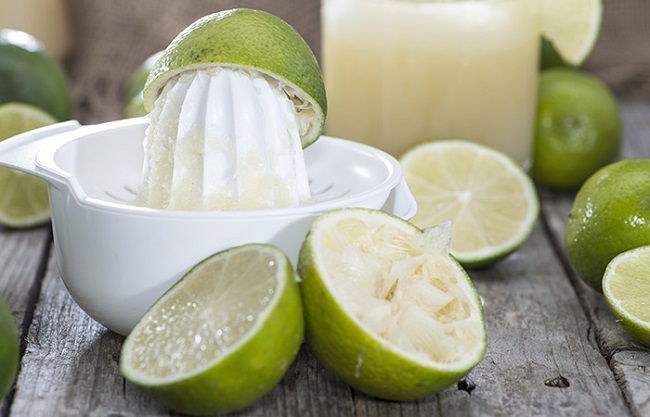THE prevalence of type 2 diabetes has surged globally, making researchers to explore natural remedies that may help control blood sugar.
Now, in a new study, researchers reported that using lime extract as a dietary supplement offers a financially sensible method of achieving home-based glycaemic control and could help treat type 2 diabetes.
The study found that lime extract greatly lowers blood sugar levels after meals, showing a 47.9% drop compared to those not using it, which suggests that it could be a helpful natural addition to regular diabetes treatments.
Citrus aurantiifolia, also known as lime, has numerous medicinal uses in traditional medicine, and its traditional uses include treating sore throats, coughs, stomach ailments, and headaches, while scientific studies highlight its potential in improving immunity, promoting skin health, and preventing certain cancers and kidney stones.
In the International Journal of KIU, they reported that participants consuming lime extract had lower blood glucose levels after glucose ingestion, indicating its effectiveness in managing blood sugar responses.
They suggested that the potential of lime extract in managing blood sugar fluctuations in people with type 2 diabetes may be due to its chemical content, such as flavonoids and polyphenols.
Studies indicate that these flavonoids and polyphenols can improve insulin sensitivity and reduce insulin resistance, which are critical factors in managing type 2 diabetes.
According to the study, “Incorporating Citrus aurantiifolia extract as a dietary supplement may offer a cost-effective home-based remedy in blood sugar level control and diabetes management, contributing to improved health outcomes and quality of life.”
The randomized clinical trial enrolled 74 healthy male participants. They were randomly assigned into two groups and were administered 75g of glucose in water, following an overnight fast of 8 to 10 hours.
After that, one group (the test group) was given lime extract, and the other group (the control group) was not. Blood glucose levels were measured during a fast, half an hour after eating, and then at regular intervals for an hour after the glucose solution was consumed.
ALSO READ: Police suspend enforcement of vehicle tinted glass permit
The extract exhibited a significant reduction of 47.9 per cent in blood glucose levels in the test group compared to the control group after 30 minutes, indicating lime as a simple, cost-effective supplement for blood sugar management and possible benefit in type 2 diabetes care.
Even a tea from lime and Lipton tea (Camellia sinensis) in moderate dosage can be significant in the reduction of high blood glucose levels; hence, it may be promising as alternative preventive medicine for the management of diabetes mellitus and its complications.
Researchers at Niger Delta University, Bayelsa, had determined the effects of the decoction of lime and Lipton tea on blood glucose concentration and weight of normal albino rats in the Scholars International Journal of Biochemistry.
The result showed that tea made from lime and Lipton tea in moderate dosage significantly decreased the blood glucose level in the test group compared to the controls.
They believe that the impact is most likely the result of the tea’s anti-obesity effects compounding the lime.
Further studies also suggest that lime extracts may serve as a safe and effective nutritional adjunct to metformin in the early management of prediabetes.
In the journal, Frontiers in Nutrition, the researchers found that lime supplements, when combined with metformin, significantly improved several metabolic markers in prediabetic patients, including blood sugar control, inflammation, oxidative stress, body composition, and blood pressure.
Prediabetic patients have blood sugar (glucose) levels higher than normal but not high enough to be diagnosed as type 2 diabetes. This condition increases the risk of developing type 2 diabetes, heart disease, and stroke, but it is often reversible or preventable with lifestyle changes like diet modification and increased physical activity.
Metformin therapy in individuals with prediabetes reduces the risk of progression to type 2 diabetes by 7.2% and promotes modest weight loss.
Supplementing metformin with lime led to modest but statistically significant decreases in body weight, fat mass, and BMI.
Systolic blood pressure was reduced by 4 per cent in these prediabetic patients, which was potentially linked to improved antioxidant status and higher dietary potassium intake.
The researcher claims that adding lime to metformin therapy offers a promising way to improve metabolic control—the chemical interactions in the body’s cells that convert food into energy—and reduce a number of health indicators in people with prediabetes, which calls for more research.
Gastrointestinal adverse effects—primarily diarrhoea and nausea—occur in up to 25 per cent of individuals that take metformin.
Recent studies have demonstrated that combining metformin therapy with natural compounds exhibiting antidiabetic activity may enable effective blood sugar control with lower metformin doses and fewer gastrointestinal side effects.
Thus, by improving insulin sensitivity, the addition of lime to metformin therapy may help reduce long-term CVD risk in prediabetic individuals.
In order to guide future research in this field, the study also highlights the necessity of additional long-term studies to validate these results and clarify underlying mechanisms
WATCH TOP VIDEOS FROM NIGERIAN TRIBUNE TV


















